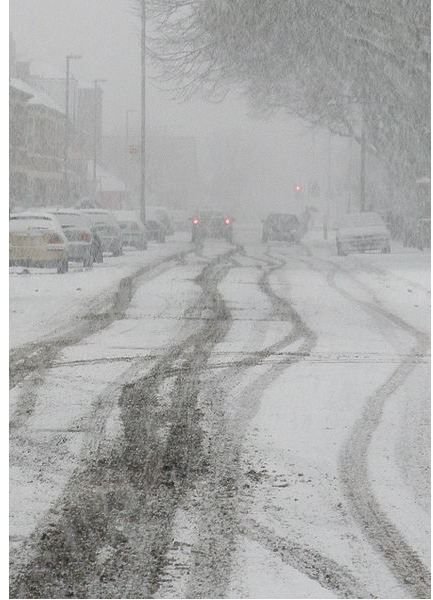HR Weather Policies: Employees' Guidelines During Adverse Weather Disturbances
Bad-Weather Policies to Address Employees’ Right to Safety
Under the concept of “at will employment,” some employers are complacent about their bad weather decisions since there are no laws governing business organizations as to how to treat employees during adverse weather disturbances. However, employment actions or decisions in relation to the severity of weather conditions have to take into consideration the impact of such decisions on their employees. This is in light of the following circumstances:
-
The threats to the health and safety of the employees in connection with the external or outdoor hazards brought about by weather adversities.
-
The preparedness of the workplace for emergencies in order to lessen the potential adverse effects of natural calamities.
-
Payment of compensation for minimum wage earners or overtime-exempt employees w_ho will perform work to make-up for lost time if the business is kept closed._
-
The non-discriminatory or non-retaliatory nature of requiring employees to report for work or compensating those that do not report for work or those allowed to make-up for lost time.
The different administrative units of the Department of Labor (DOL), which includes the Occupational Safety and Health Administration (OSHA), Fair Labor Standards Administration (FSLA), and Equal Employment Opportunity Commission (EEOC), implement specific laws to uphold the rights of the employees.
Due to the ambivalence of decisions regarding employment conditions in times of severe weather disturbances, it would be best for a business organization to formulate HR weather policies and procedures. The same should be incorporated in the Employee’s Handbook to serve as a ready reference regarding the guidelines to be observed in the event the business will be forced to stay closed or if the employees will be required to report for work during adverse weather conditions.
The categorical statements of said policies and procedures will provide government administrative units the basis for discerning whether the employer’s treatment of employees in relation to adverse weather conditions encroaches on the rights of employees.
Examples of Adverse Weather Guidelines

The Economic Research Council (ERC) conducted a survey of the workplace issues that tend to cloud the employee’s decision as to whether or not to report for work during severe weather conditions. In order to assist employers, HR managers and employees alike, the ERC likewise gathered information about common procedural guidelines that are being implemented and are enumerated as follows:
Purpose of the Policy: The most common purpose for implementing the set of adverse weather policies is to ensure the employee’s safety during severe weather and climate disturbance.
Who Decides to Close Temporarily or Keep the Business Facilities Open?
Top management, usually the owner of the business, the president, or the CEO makes the decision.
Common Determinants Considered as Basis for Closure Decisions:
Aside from the top management’s personal assessment and discretion, other determinants include the following factors:
- The weather disturbance poses threats to public safety.
- There are specific weather advisories to stay indoors and avoid certain hazards.
- Roads are impassable or there are existing environmental detriments that threaten transportation infrastructures.
- There are advisories and confirmed reports about poor driving conditions e.g. zero visibility, flooding, landslides, thick snow, etc.

Suggested Method of Communicating Temporary Business Closure Due to Inclement Weather:
The Phone Tree: This is the most popular among the common methods used to communicate the CEO’s decision to close the place of business and its related facilities temporarily.
A phone tree or phone pyramid is an organized system of disseminating information about canceled events or temporary cessation of a regular activity.
For this purpose, the CEO is at the uppermost level of the tree and will call the senior executives to let them know of his decision to close the business temporarily in light of the adverse weather conditions. The information then continues to travel downwards to the supervisory level until the information reaches employees at the lowest level of the organizational structure.
The concept of phone tree communication may likewise be facilitated by way of e-mail, text or chat messages depending upon whichever method will ensure the fastest and surest way of transmitting the CEO’s decision.

Common Policies and Procedures Being Adopted:
Take note that the following are random examples of weather policies and are independent from each other. Said examples are being furnished only as a basis for study and not as recommendations:
-
Generally, the business remains open except in weather conditions that are regarded as extreme or adverse. Employees who cannot report for work should make all efforts to notify their respective supervisors and regard the exercise as a regular procedure of calling off a work schedule.
-
The company normally remains open even during inclement weather conditions based on a consensus gathered from among the majority of employees who prefer to work instead of losing their pay for the day. Hence, if an employee cannot make it on time or has decided not to report for work and the plant is open, tardiness or absence will not affect the employee’s “good attendance” records, but the “no-work, no-pay” rule still prevails. However, if the top management initiates the temporary plant closure, all employees who were scheduled to work on the said date shall receive their regular pay as if services were rendered for a full eight-hour shift.
-
Management’s decision to close the business or plant shall be made known to all employees via the local radio networks and on the company’s website. Any employee who decides not to report for work if there are no notifications of plant closures will have to file a request for an unscheduled leave of absence if they wish to have their pay for the day charged against their paid vacation leave.
-
The company shall automatically close for business if the county authorities declare a Level 3 weather emergency. Time off from work is considered as excused but without pay or may be charged against paid leave credits if so requested.
-
If the governor of the state declares a shutdown of all administrative government units except those units that have to be mobilized during a statewide emergency, the company’s business shall likewise be kept closed but subject to further notice of re-opening that will be initiated by the company’s management.
-
If the business has officially and temporarily closed, all key personnel included in the “Roster of Essential Personnel” maintained by each department shall still be expected to report for work unless otherwise instructed. The list of essential personnel shall be updated on a monthly basis for which the HR department shall be provided with updated copies. All essential employees who will report for work shall be entitled to overtime pay, at the rate of 1.5 times their regular pay rates calculated on an hourly basis. Essential employees who cannot report for work should send-in immediate notifications, in order to be considered as excused but without pay.
-
The business remains open despite inclement weathers and the company expects its employees to take all the necessary precautions against unnecessary risks while commuting. Employees, therefore, will decide whether to report for work based on their own assessment of their situations. However, their decision shall be immediately communicated to their supervisors within the first hour of the regular working schedule. All employees who cannot report for work shall be considered as on a paid-time-off (PTO) status for every day of non-reporting. Employees without PTO benefits will have to submit individual requests for make-up time in order to recover the lost salary.
-
The business is generally open even during adverse weather conditions except in cases where the state authorities have declared that the road conditions will allow only emergency vehicles to travel the main thoroughfares so as not hamper any emergency situations.
-
In case management decides to close the workplace after the reporting employees have already performed work for a number of hours, then said employees shall be paid accordingly. However, for employees who have rendered more than four hours of work prior to management’s decision for “early time-off,” they will be entitled to a full day’s compensation of eight hours of work.
-
Employees paid on a monthly basis who decide not to report for work even if the business is open, will not have any pay deduction but the absence will reduce his or her PTO by the corresponding time spent off from work. Any requests to perform work at home shall be considered but are subject to approval.
In formulating HR weather policies, it would be best to keep the policies aligned with the laws under which the DOL’s administrative agencies operate. That way, the business organization will be confident that their procedural guidelines during inclement weathers are all in accordance with existing employment laws.
Reference Materials and Image Credit Section:
Reference:
- Author Unknown, “Inclement / Adverse Weather Policies & Practices,” ERC Research, https://www.ercnet.org/research/studies/08%20Research%20Study%20-%20Inclement%20&%20Adverse%20Weather.pdf
Image Credits:
- Great Western Street, Moss Side, Manchester in a snow storm by Mosscat under CC BY SA 3.0
- Portland, ME, March 2, 2007 – A person walking with an umbrella during a snowstorm in downtown Portland, Maine. Maine Kevin Galvin/FEMA by Kevin Galvin under Public Domain
- Public Information Symbol Emergency Telephone by the United States Federal Government under Public Domain
- Thinking about the snow storm two snowmen in Church Square, Tring With his head in his hands he is clearly thinking about all the people who, the previous night, had abandoned their cars on the nearby bypass which had been made impassable by the snow. Many people were left unmoving for hours (the photographer of this picture took over six hours to travel from the M25 junction to Tring.) Some people were left in stationary cars for so long that their children got out and built snowmen on the verge of the dual carriageway. by Attribution: Chris Reynolds under CC BY SA 2.0
